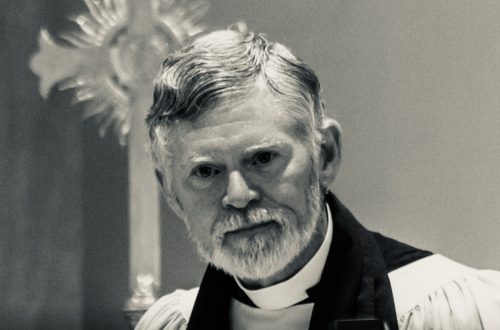John Piper gives his answer, and I think it’s a good one. He says,
“The way most PhD programs are set up it is small payoff. Because you have to read so much junk in order to get your PhD. You have to become an expert in what other people are saying, most of which is wrong.
“Most of the stuff that is written in the world isn’t true. And a PhD has to be an expert. And so you have to read gobs and gobs of stuff that is unhelpful…
“If a PhD program is set up—and there are some!—to really let you work on the Bible for three or four years and on understanding its larger implications for life and reality, then, on your way towards the pastorate, that could be gold.
“But mine wasn’t set up that way. And when I was done with those three years I had a piece of paper, the German language, and an appreciation for academic theology; but I had not grown much at all, except what I got on my own.
“So it is possible to do stupid PhDs for the piece of paper. I would much rather you do a wise PhD—that is, go to a place where they really let you study the Bible mainly. Yes, you’ve gotta read other stuff. But you want to come out of there with three years’ worth with a big, large, strong, robust, deep grasp of God and his ways in the world, not just a little tiny slice of what a thousand wrong people are saying about some teeny verse in the Bible. That’s just a sad use of three years.”
There’s always more that can and should be said in answer to a question like this one. Having said that, I think Piper’s answer is correct. You don’t need a Ph.D. to be a pastor. Nevertheless, some will want to pursue this kind of study. Pastors need skill in handling the text of scripture, and Ph.D.’s that enhance one’s ability to deal with interpreting and applying the Bible are the best ones there are for pastors.




10 Comments
Scott
Denny,
Any idea what programs he’s referring to as good ones?
mike
um, his explanation of what a PhD SHOULD BE is exactly what my MDiv experience was. only i stretched it into 4 yrs instead of 3. that said, maybe if MDiv programs were better and featured more Bible, then rigorous PhD programs where you read a lot of other stuff would simply be building on a solid foundation.
But there’s another issue. Many reformed Baptist types never think they’re wrong about any theological issue. So naturally they wouldn’t want to spend 3 years reading other people’s perspectives. They’ve already got it figured out. And I say this as a somewhat reformed baptist myself.
Just some thoughts. But there’s more to biblical studies than “just studying the Bible.” Without understanding the history of one’s discipline, one has no idea how he or she has been molded and how their perspective has been shaped.
Matt Svoboda
Mike,
I agree with you on this one… I dont think it is a waste of 3 years to seriously study what others are saying on a certain issue, even if they are wrong.
For instance, I don’t see how it is a waste of time to become an “expert” in hermeneutics or ecclesiology… It will take a ton of time to researching their history, etc. but I jsut dont see how that would be a waste of time. I’d love 3 years to study the ecclesiology- its history, practices, etc.
This is one area that I think I disagree with Piper… I should spend some more time thinking on it though.
Donald Johnson
Should a pastor get a PhD? Maybe, but it is not required.
Do not get any degree just for a piece of paper.
What is needed is to be an example, this includes being a Berean and learning as a life long activity.
Gunny Hartman
My PhD pursuit has somewhat stalled, primarily because I was most motivated by the piece of paper.
I would be interested in the PhD v. DMin discussion, particularly with regard to the pastorate.
Charles
3 years will work for a European or seminary PhD but not for a North American research program–5 year minimum 6-8 years average.
I think there are many aspects of a PhD beyond the content that are beneficial to the pastorate that Piper does not discuss–such as refinement of research methodologies, critical thinking, bibliography, writing skills, etc. So, studying non-Bible subjects can still be tremendously helpful.
I did a PhD in Cuneiform studies focusing upon Sumerian and it was very helpful to me and I certainly do not think that all I received was a piece of paper.
Mark
From my personal experience, programs like the MTS, MDiv, MA, etc. were more rigorous than PhDs. I don’t know, just is.
Pingback:
Chris Bonts
I think pastors should pursue a Ph.D., if it is the right one for them. I did my Ph.D. at Southern, in the Graham School. It helped me immensely in my preparation for ministry. The research demands were significant, but almost all of my research was in areas that had direct impact upon local church ministry in one way or another. One of the keys to effective preparation for ministry in any Ph.D. program would be choosing research topics that force you to engage issues that will help you grow as a pastor. I did not have a single professor in my Ph.D. studies that discouraged me from including practical application of my research topics a part of my papers/presentations.
BTW, my seminars were Theology of Evangelism, Theology of Mission, Ecclesiology, Theology Proper, Spiritual Warfare, Contemporary Issues in Church Growth (Emerging Church), The Influence of American Evangelist (Edwards, Whitefield, Finney, etc.), and finally, Christology and Incarnation. Every class was beneficial to me. In my estimation, I gained the equivalent of 10-15 years ministerial experience in my seminar work alone.
David A Booth
Whether or not a Ph.D. is a wise choice, most pastors would benefit from more formal education.
The reality is that most M.Div. programs offer a bit of everything and fall far short of adequately equipping pastors to be competent expositors of Scripture. Except for the problem that paying for 3 years of seminary is already such a heavy burden for many students – it would be good for us to shift to the 4 year Th.M. model adopted by DTS. In lieu of that, it would be wise for many pastors or future pastors to consider a second masters degree such as a Th.M. or an M.A. in Biblical Exegesis.